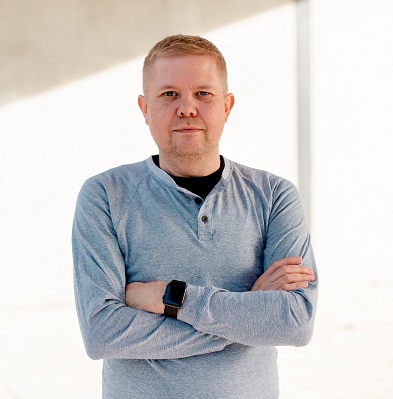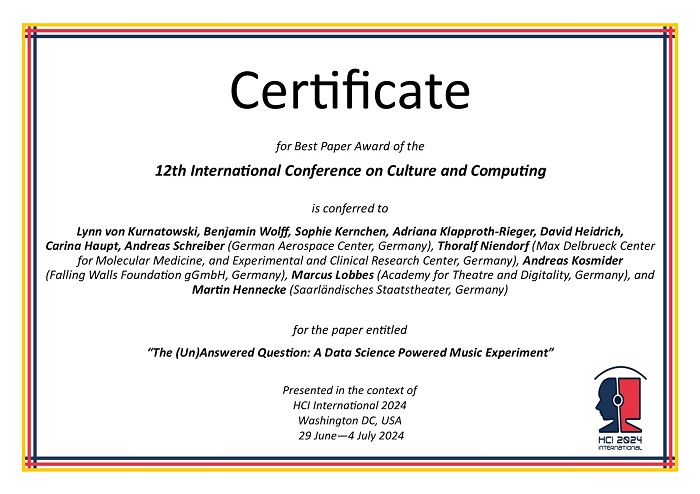
The Best Paper Award of the 12th International Conference on Culture and Computing
has been conferred to
Lynn von Kurnatowski, Benjamin Wolff, Sophie Kernchen, Adriana Klapproth-Rieger,
David Heidrich, Carina Haupt, Andreas Schreiber (German Aerospace Center – DLR, Germany),
Thoralf Niendorf (Max Delbrueck Center for Molecular Medicine – MDC, and Experimental and Clinical Research Center - ECRC, Germany),
Andreas Kosmider (Falling Walls Foundation gGmbH, Germany),
Marcus Lobbes (Academy for Theatre and Digitality, Germany),
and Martin Hennecke (Saarländisches Staatstheater, Germany)
for the paper entitled
"The (Un)Answered Question: A Data Science Powered Music Experiment"

Andreas Schreiber
(presenter)

Best Paper Award for the 12th International Conference on Culture and Computing, in the context of HCI International 2024, Washington DC, USA, 29 June - 4 July 2024

Certificate for Best Paper Award of the 12th International Conference on Culture and Computing presented in the context of HCI International 2024, Washington DC, USA, 29 June - 4 July 2024
Paper Abstract
This paper describes the intentions, setup, and live performance of a musical experiment that explores the complex intersection of human-technology interactions, music, and data collection. It brings art and data science together through a novel experimental music installation. The interdisciplinary project “The (Un)Answered Question: A Data Science Powered Music Experiment” explored integrating data science and biomedical imaging techniques with theatrical and compositional ideas. This combination leads to the creation of interactive music. Gestural interfaces and sensory input devices translate physiological behavior into music through digital signal processing. Ralph Waldo Emerson’s poem “The Sphynx” and Charles Ives’ composition “The Unanswered Question” serve as foundational elements to create a live remix of the original music using biometric data from performers and an audience of 180 people. The audience became a powerful instrument of musical expression. Each live performance was experiential and unique, depending on the different people involved.
The full paper is available through SpringerLink, provided that you have proper access rights.